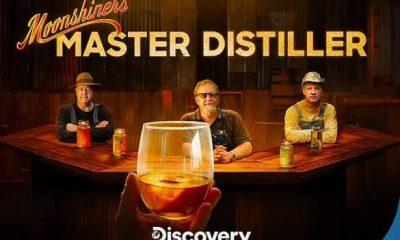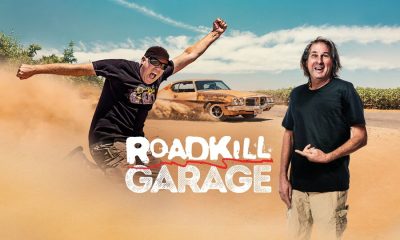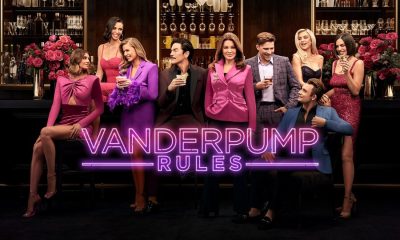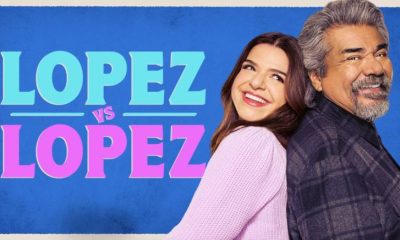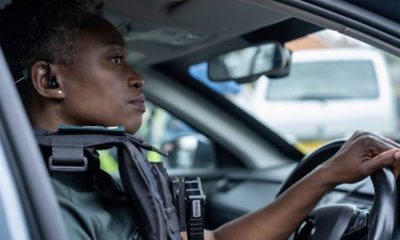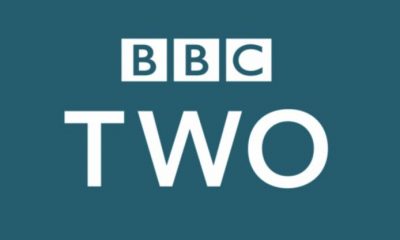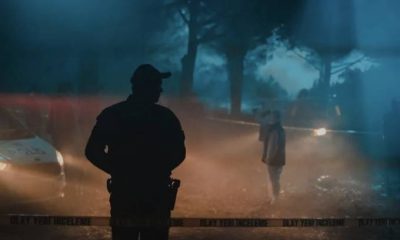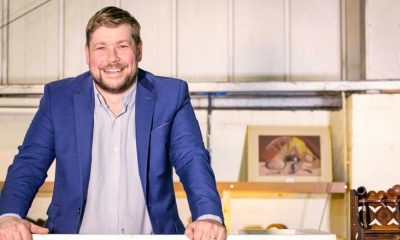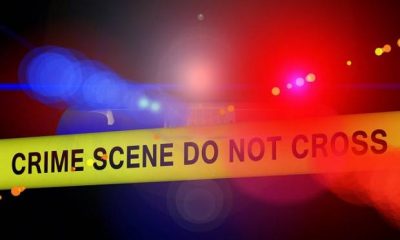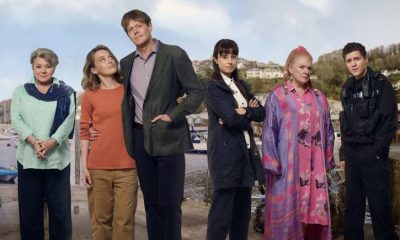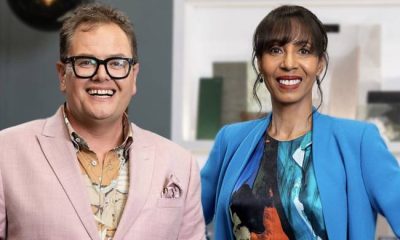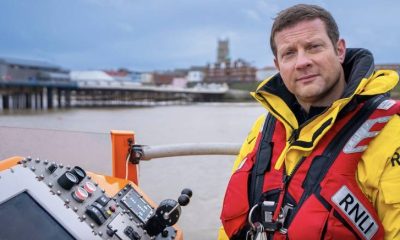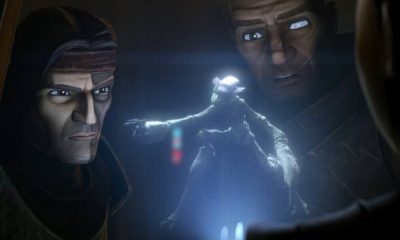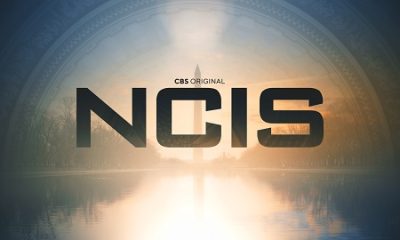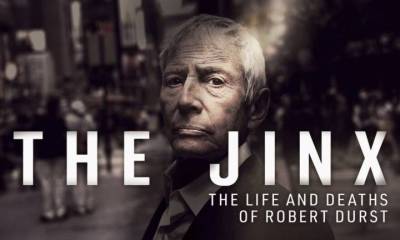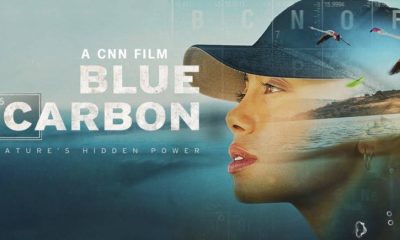Interviews
Legendary tv and film scribe Peter Yeldam Interviewed
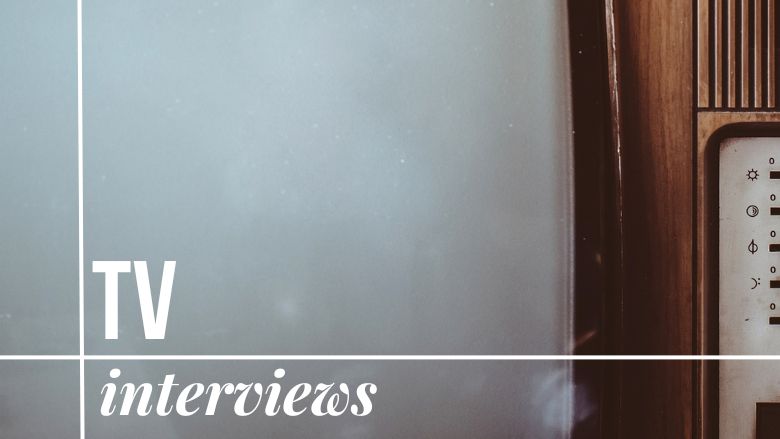
Memorable TV were recently lucky enough to speak to writer Peter Yeldham, who has a long and distinguished career in not just the TV industry but in radio, film and also literature.
I suppose the best place to start is at the beginning, had writing always been something you did whilst growing up?
I was about sixteen when I first wanted to write. It came at an odd time, because I’d decided to leave school after what in those days was called the Intermediate Certificate, the equivalent of England’s O levels. I was sure I wanted to be a Jackaroo, and landed a job on a cattle station in South West Queensland. I’d only been there about a week, when I thought — “I don’t want to do this. I want to be a writer.” But it took me another six months before I could extricate myself from this place – it was called Claverton Downs and was about half the size of Wales. My family were furious, they said I’d chucked school, chucked a good steady job in the bush, and was clearly headed for disaster.
I believe you began your writing career in the Australian radio industry, how did your entry into that come about?
I tried to get a job as a cadet reporter or a copy boy on The Herald, but was told the Herald only employed people with University degrees. So I got a job at 2GB as a messenger boy. 2GB was situated in Phillip Street. It was the main station of the Macquarie Network, which produced a huge amount of radio drama at that time. I kept writing scripts and plagued the head story editor there until he accepted one. Probably hoped it would shut me up, but it encouraged me. I was seventeen then, and scratched a living for the next five or six years, then started to get lots of work.
In the 1950’s you decided to move with your family to England. What made you decide to give up your Australian career and move to the UK?
By 1956 I was well established as a radio writer and occasional director in Sydney. It was a truly thriving industry, but the rates of pay were abysmal. As a result the big earners were those who could write the most, and it started to feel like hack work to me. I went home on the Manly ferry one night, watched the ferry’s wash, and said to my wife: “Television’s coming. Let’s take a chance and go to England.” She looked at me and said: “When?” We had a five year old child, and a two year old, and just enough money to pay our fare – one way. No return fare: very little money when we landed there. Our friends said we were mad. We agreed, but impulses are what makes life exciting. A year or two we told ourselves, before the kids were anchored in the school system. We were in our mid-twenties, and it seemed like the logical time to have a bash. A year or two, and see what happened. What happened was, we stayed almost twenty years.
How easy was it to then get work in the UK radio and tv industry, did they (the producers etc) feel that as an Aussie your credentials somehow wouldn’t be upto par?
It was tough getting work at first. I had one contact, the rather notorious but successful producer Harry Alan Towers, who was doing a radio series of “The Third Man.” By chance a friend in Sydney said be sure to look him up when you arrive. I said, “but I just read in the papers he’s bankrupt.” The friend said: “You’ll take six weeks by sea to get there. He’ll be solvent with a new company by then.” And indeed he was! But it was just enough to keep us afloat as a family. We were actually far too broke to afford the fare home, which was fortunate, because after about eighteen months I suddenly cracked it in a most remarkable way.
Your timing was particularly good wasn’t it, TV in Britain was then really entering into what most believe was it’s golden age, certainly an era that produced some outstanding television, what was your breakthrough into getting material produced and what were some of the first shows you worked on?
My timing was good. Commercial television was only a few years old. In those days there were lots of single tv plays. I wrote several, as well as submitting many ideas and treatments for BBC and ITV series that were then in production. I was lucky enough to meet Spike Milligan, who liked Australians because his mother had just migrated here to settle in the central coast district of Woy Woy. Spike introduced me to his secretary and agent at the time, Beryl Vertue, who has since become one of England’s leading film and TV producers. Beryl was in her early twenties, eager and ambitious. She had lots of comedy writers on her books: Spike himself, Eric Sykes, Ray Galton and Alan Simpson, who wrote for Hancock and also “Steptoe and Son”, and Johnny Speight who became famous for “Till Death do us Part”. When I joined the agency I was the only drama writer. It was a challenge for her, and a lucky break for me. I’ve never had a better agent.
But for over a year nothing much happened, except near misses and rejections. I was on the point of giving up. We borrowed money for my wife and children’s fares home: the idea was I would follow as soon as I could afford it. Then one morning in a basement flat we had in Earls Court the phone rang. It was Beryl, who said Granada Television wanted me to write an episode of their crime series “Shadow Squad.” An hour later a delirious and disbelieving Beryl rang again. The BBC had bought a TV play. Two shows sold in the space of one morning, after a year of disappointments and frustration. We cancelled the idea of anyone going home. In the next few years I wrote plays for “Armchair Theatre”, “Play of the Week” and “BBC Theatre”, for series like “No Hiding Place”, “Probation Officer”, “Love Story,” “The Persuaders”, the American series “Espionage, and “Mis-Adventure” in collaboration with my wife Marjorie Yeldham, as a starring vehicle for the gifted comedienne Hattie Jacques.
I think the best series I worked on in that early period was “Probation Officer”. Set in an East London district, it tackled adult subjects that had never been seen in television until then. There were four writers, and a bright and innovative producer, Antony Kearey, one of the best I have ever worked with. We had a story conference once a month, each chose a subject, then went away to write it. Unlike most producers at the time, Tony never insisted on ‘treatments’ or ‘step-outlines’, those rather plodding and destructive ways to ruin a good story. One day I said to him: “An alcoholic wakes up in a crummy hotel room. He can’t remember how he got there, but he is still holding a bunch of flowers. Later, he remembers they were for his wife, and it was their wedding anniversary.” “Fair opening scene,” Tony said, “what happens next?” “Buggered if I know,” I said. “Go away and write it,” he told me. I did, and the next year, 1963, I won the British Writers Guild award for that script.
Around this time you were also writing some film scripts, You actually worked on, in my opinion, one of the best films of the early sixties, The Comedy Man with Kenneth More, which seemed to have an underlying melancholia to it, how did the script for that develop?
Kenny More was another piece of good fortune. A likable and fine actor, he was both enthusiastic and encouraging. First though, I had to “audition” to get the job by writing some sample scenes, as the producer Jon Penington liked my television work, but there were a lot of better credited writers around. I wrote the scenes and got the job. “The Comedy Man” was an ironic title: the leading character was an actor who lived on the bones of his arse. As I had recently done that myself, waiting for phones that never rang, knowing the panic of desperation, I was able to adapt and embellish Douglas Hayes’ truthful novel. Kenneth More went around London singing my praises; we spent a lot of time together and it was one of the happy memories. However — there is often a however – Kenny had recently left his wife of many years to live with youthful Angela Douglas. (She was in the film.) The British public are fiercely loyal to their favourite stars, but they don’t easily forgive their frailties. The audiences stayed away. The picture was not a box office success, although the reviews were wonderful, and later it became a cult picture in America. Years after that, when I returned to live in Australia I was asked to give a lecture to students at the Film and Television School. They suggested I should show one of the dozen or so films I’d worked on, whichever one I felt might have the most impact. I chose “The Comedy Man”.
Concurrent to your TV work you were also worked on several stage plays, had you always been interested in the theatre or did your work in it come about as a direct commmission?
The stage plays I wrote came about because of an unhappy experience with a feature film. By the late sixties I’d written about eight screenplays, plus heaps of television. I had a call from the Mirisch Bros in America. Would I be interested in writing a war film they hoped to make in England. I signed for what was a big fee at the time, and then found I could not work with the producers assigned to the project. It was a very unhappy experience, and at the end of it I decided I could afford to spend the winter writing a stage play. Something for myself, which meant it was essential I write it without being commissioned.
Four months later I finished a comedy entitled “Birds on the Wing”, and sent it to my agent. She enthused and sent it to a theatrical management. Not only he, but four other managements promptly rejected it. I wrote about this experience in a piece which I called “A Diary of a Play”, far too long to recount here since we are primarily talking about television, but after eighteen months the play was finally produced in London’s West End. Then it was staged in Berlin, which was where the magic started. The reviews in Berlin were so fabulous that it sparked productions in Hamburg, Munich, Paris, and a dozen other major cities. In the year 1972 it was the top grossing play in Europe. For thirty years this play has been continually restaged, and only this year (2002) I had royalties for yet another production in Munich.
I wrote five other stage plays, two of them in collaboration with my close friend, the English actor Donald Churchill. Our comedy “Fringe Benefits” ran for two years in Paris. I love the theatre; for a writer the rehearsal and production of a stage play is something very special. But my first play was my best. I’ve never been able to equal the phenomenal success of “Birds on the Wing”, which for some time looked as if it might be a total failure. That’s the joy and fun of being a writer. You take a punt, it looks like catastrophe, and then comes this astonishing success.
Moving now to the early seventies you created the popular daytime show Harriet’s back in Town which I believe was one of the first drama series shown on the then new ITV Daytime schedule and the Richard Briers sitcom about conmen Birds on the Wing? Any memories of those two shows?
“Harriet’s Back in Town” was written as a play for Armchair Theatre, until the idea of ITV doing daytime serials was mooted. The Head of Drama at Thames asked if I’d consider turning it into a serial, and although I was disappointed at it not being done as a play, eventually agreed I’d write the first six half hour episodes, be on hand to story edit, and hoped it would run for years so I could retire on the residuals. Of course it didn’t happen like that.
It was based around a woman’s experience of her husband leaving her for a younger woman, her subsequent divorce and life afterwards. It’s a theme I used in my recent stage play, “Split Down the Middle”, but as a long-running serial it was doomed. We managed a year. I got far more involved in story editing and rewriting than I wanted to be, and it was with a feeling of relief that we pulled the plug after two episodes each week for twelve months. The same day that ‘Harriet’ began its year run on Thames, so did a serial about a Vet’s practice called “Emerdale Farm”. When I was in England last year, twenty-something years later, that was still running! The originating writer, I assume, was living in the South of France on his royalties. After that I did a six part comedy series for the BBC, starring Richard Briers and based on my stage play “Birds on the Wing”. Richard was a joy to work with; on the nights we recorded each show he used to have dinner with my wife and I at our favourite South Kensington restaurant. The owner was a friend of ours and a fan of Richard, and used to ply us with brandies long after the place closed to other patrons.
In the mid 1970’s you decided to return home to Australia, what prompted your move back?
I still miss the excitement of London, the friends we made there, and the memories, but the feeling that brought me back to Australia is something that often happens to expatriates. We started to become homesick. We’d been back on a few working trips in the early seventies, and felt the new vibrancy of the place. Our kids were now young adults, and one had already chosen to return to Australia. So we decided to spend six months here, which made us realised how much we’d missed it, so we rented our house in England, headed home for a temporary stay to see what happened.
How easy was it then to get involved in the local TV industry?
What happened was that I wrote a six part thriller for the ABC, who then asked me if I’d do another show for them. After that they remembered they owned the rights of a huge Australian historical trilogy called “The Timeless Land”. They had tried to do it before as a 26 part series, but never had the money for this. By the time they spoke to me in 1980 they realised it could only be an eight hour series. I saw problems, a lot of the story and characters would have to be left out. But I agreed to adapt it, and I think it was a good production. The ABC put a lot of effort into it. A year later they sold it to Paramount Pictures for a million dollars, which was the first big international sale from the ABC or any other production house in this country.
You’ve been the writer responsible for some of Australia’s most popular mini-series from All the Rivers Run, The Heroes to Captain James Cook to many more, how does that feel to almost singlehandedly revive the Australian TV industry?
After that, I hardly stopped writing mini-series for the next ten years. Eighteen of them, believe it or not! At first I worked almost entirely for the ABC: the head of their Forest Studios, Ray Alchin, became a close friend, and before his untimely death we did shows of which I’m still proud. The war epic “1915” won a swag of awards: then we did “Tusitala”, the life of Robert Louis Stevenson and his last turbulent years in Western Samoa, and after several others came “Captain James Cook”, with Keith Michel and a fairly starry cast from all over the world. Our last ABC mini-series together was “The Alien Years”, which I later turned into a novel.
Are there any stories that stick in your mind from your work on those shows? All the Rivers Run was a huge success around the world as was Captain James Cook (earning you an emmy nomination in the process I believe).
Exciting times. I worked as well on projects for the commercial networks. “All the Rivers Run, “The Far Country”, “The Lancaster Miller Affair,” “The Heroes” which was about the extraordinary raid on Singapore harbour in a fishing boat called The Krait, and “Heroes II, The Return”, which was the tragic story of their vain attempt to repeat that triumph. Later there was the mini-series “Naked Under Capricorn”, starring Nigel Havers with Nonie Hazelhurst and Gulpillil. After that the realisation of a ten year attempt to see the adaptation of Kylie Tennant’s novel “The Battlers” finally on the screen. Some of these shows won me Awards. I think they were all worthwhile ventures, spreading the belief as they were sold around the world, that Australia could deliver some top rating television shows. Now we were in the market place at Cannes. Overseas money came here, other countries were eager to do co-productions.I’m glad and proud to have been a part of that.
Since returning to Australia you’ve also embarked on a career as a best selling novelist with books like The Currency Lads and A Bitter Harvest. Many of your novels have dealt in one way or another with the migrant experience, is this something you feel strongly about having sort of experienced the migrant thing from both ends?
Maybe as a break from so many years of writing for film and television, I sat down to try working on an idea I had for a novel. It was a thriller called “Reprisal” which was rejected a few times before I found a publisher, and was later bought by Readers Digest for their abridged books overseas. It was also made into a telemovie, as was my second novel, another thriller called “Without Warning”. I wrote a third thriller, “Two Sides of a Triangle”, before switching to a novel based on my mini-series “The Alien Years”, which was a story of a family through the years from eighteen-ninety until after the first world war. It was a considerable success, and persuaded me to stick to historical backgrounds. I followed it with “The Currency Lads”, set in the eighteen forties, then “Against the Tide” about post war migrants from Europe, and “Land of Dreams” set in Australia and Japan in the nineteen thirties and forties.In all I’ve written eight novels, seven of which have been published at the time of this interview. It’s far more solitary than theatre or television, but so much tv writing these days is stifled with formulas that demand a comprehensive treatment and several drafts of the script; as a result much of the writing becomes mechanical. Television today is also weighed down with far too many executive producers, all of whom make their own comments about the script, and these comments often conflict with each other. It’s sometimes a nightmare for the writer, and a far cry from the days of working with producers who trusted the writer, people like Antony Kearey in London of the sixties, or Ray Alchin in Australia.
Are you still involved with the TV scene though?
The only television I am involved in at present is an adaptation of Bryce Courtenay’s novel “Jessica”, and the only reason for that is the producer Tony Buckley. He was producer on “The Heroes” and its sequel. We are friends and we work well together, but we had far more freedom on those earlier shows. Jessica has sometimes been plagued by executive conflicts, and has not been a particularly memorable experience, despite the support and encouragement of Bryce Courtenay.
What do you currently have in the pipeline?
In the pipeline at present is a newly completed novel, and another in progress. I’ve got a sort of autobiography, although I called it a memoir that I’d like to write. It’s about being a writer for fifty years and never have had a grant or a government handout. It’s about some of the funny and sad things that happened along the way.I’ve got pages of notes in the computer, but I doubt if I’ll ever get around to writing it.There’s always a new idea for a novel or a play that keeps getting in the way.
Having worked in most spheres of the writing industry from radio, tv, the stage top novels what sphere have you enjoyed the most?
They all have their moments. Theatre was wonderful in England, where we could take a show on tour and judge audience’s reactions, and rewrite when necessary.Novels are rewarding, when the story expands way beyond the limits of the first idea, when characters emerge that had no name or life before they took shape on the page. Television had some wonderful moments for me.
What work are you most proud of having written?
I think my proudest achievement was “Captain James Cook”, although I hated the title. My own title was “The Wind and the Stars”, but the overseas finance and the ABC insisted on a change. But the production values and filming in Tahiti was great, the direction and acting were excellent, and the music score superb. It unfolded on the screen just as I saw it in my mind, and you can’t ask for much better than that.
Memorable TV would like to thank Peter Yeldham very much for his time and wonderful memories .


